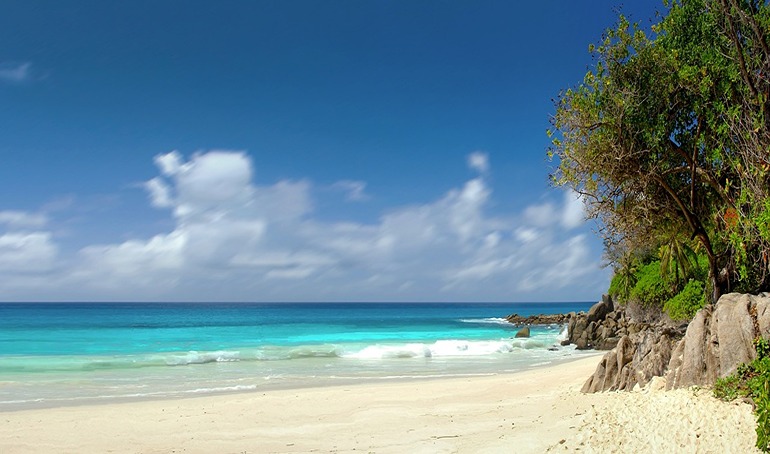
07-01-2025
admin
India's Blue Flag Beaches
A globally renowned eco-label known as the Blue Flag is given to marinas, beaches, and eco-friendly boat excursion companies. The Foundation for Environmental Education (FEE) oversees the program and has strict requirements for access, safety, education, and the environment that applicants must meet to be eligible for the award.
Blue Flag Standards Some of the conditions needed are:
1. Water Quality: Ensuring clean water with regular testing and meeting stringent quality standards.
2. Environmental Management: Efficient waste management, recycling, and environmental protection measures.
3. Safety and Services: Availability of lifeguards, first aid, and accessibility for all.
4. Environmental Education: Information on the local ecosystem and environmental issues.
India's Blue Flag Beaches List India has twelve Blue Flag beaches as of 2024 that have been acknowledged for their safety and environmental standards:
1. Kappad Beach (Kerala)
2. Kovalam Beach (Tamil Nadu)
3. Eden Beach (Puducherry)
4. Shivrajpur Beach (Gujarat)
5. Ghoghla Beach (Diu)
6. Kasarkod Beach (Karnataka)
7. Padubidri Beach (Karnataka)
8. Rushikonda Beach (Andhra Pradesh)
9. Golden Beach (Puri, Odisha)
10. Radhanagar Beach (Andaman and Nicobar Islands)
11. Minicoy Thundi Beach (Lakshadweep)
12. Kadmat Beach (Lakshadweep)
Detailed Overview of Each Beach
1. Kappad Beach (Kerala):
It is known for its historical significance, where Vasco da Gama first landed in India. The beach features natural rock formations and is equipped with eco-friendly amenities.
2. Kovalam Beach (Tamil Nadu):
Popular for its serene environment and lighthouse. It is well-maintained with safety measures and facilities promoting eco-tourism.
3. Eden Beach (Puducherry):
A serene spot with a combination of natural beauty and well-maintained amenities. Known for its calm waters, making it ideal for swimming and relaxation.
4. Shivrajpur Beach (Gujarat):
Located near the historic town of Dwarka, it is famous for its clear waters and coral reefs. The beach is well-equipped with facilities promoting cleanliness and safety.
5. Ghoghla Beach (Diu):
A secluded and less crowded beach, offering a tranquil atmosphere. It's known for its golden sands and clean surroundings. 6. Kasarkod Beach (Karnataka): Known for its picturesque setting and clean environment. The beach has facilities for water sports and eco-friendly tourism practices.
7. Padubidri Beach (Karnataka):
Incorporates both cultural history and scenic beauty. The beach promotes sustainable tourism with facilities for visitors.
8. Rushikonda Beach (Andhra Pradesh):
A popular beach near Visakhapatnam, known for its golden sands and water sports. It is maintained to high environmental standards and offers amenities for tourists.
9. Golden Beach (Puri, Odisha):
Located near the famous Jagannath Temple, it attracts a large number of pilgrims and tourists. The beach is well-kept with facilities for environmental education and visitor safety.
10. Radhanagar Beach (Andaman and Nicobar Islands):
Often listed among the world's best beaches, it is known for its pristine beauty and clear waters. It offers a tranquil experience with stringent environmental and safety measures in place.
11. Minicoy Thundi Beach (Lakshadweep):
A relatively new addition to the Blue Flag list, known for its turquoise waters and white sands. The beach promotes eco-tourism and provides amenities for a comfortable visit.
12. Kadmat Beach (Lakshadweep):
Famous for its scenic beauty and coral reefs, it is a paradise for water sports enthusiasts. The beach is maintained with a focus on sustainability and visitor safety.
Benefits of Blue Flag Certification
• Environmental Protection: The certification promotes sustainable development in coastal areas and the protection of the natural environment. • Tourism Boost: Beaches with Blue Flag status attract more tourists, enhancing the local economy.
• Safety and Services: Ensures high standards of safety and services, providing a better experience for visitors.
• Community Engagement: Encourages local communities to participate in environmental conservation efforts and maintain the quality of their coastal areas.
Challenges
• Stringent Criteria: Meeting and maintaining Blue Flag standards can be challenging and requires continuous effort and investment.
• Balancing Development and Conservation: Ensuring that tourism development does not harm the natural environment. In summary: Beaches that have earned the Blue Flag accreditation are highly esteemed for their dedication to maintaining the strictest regulations for safety and the environment. India has had success in promoting sustainable coastal tourism and protecting its unique natural heritage, as evidenced by the inclusion of 12 beaches on the Blue Flag list.
